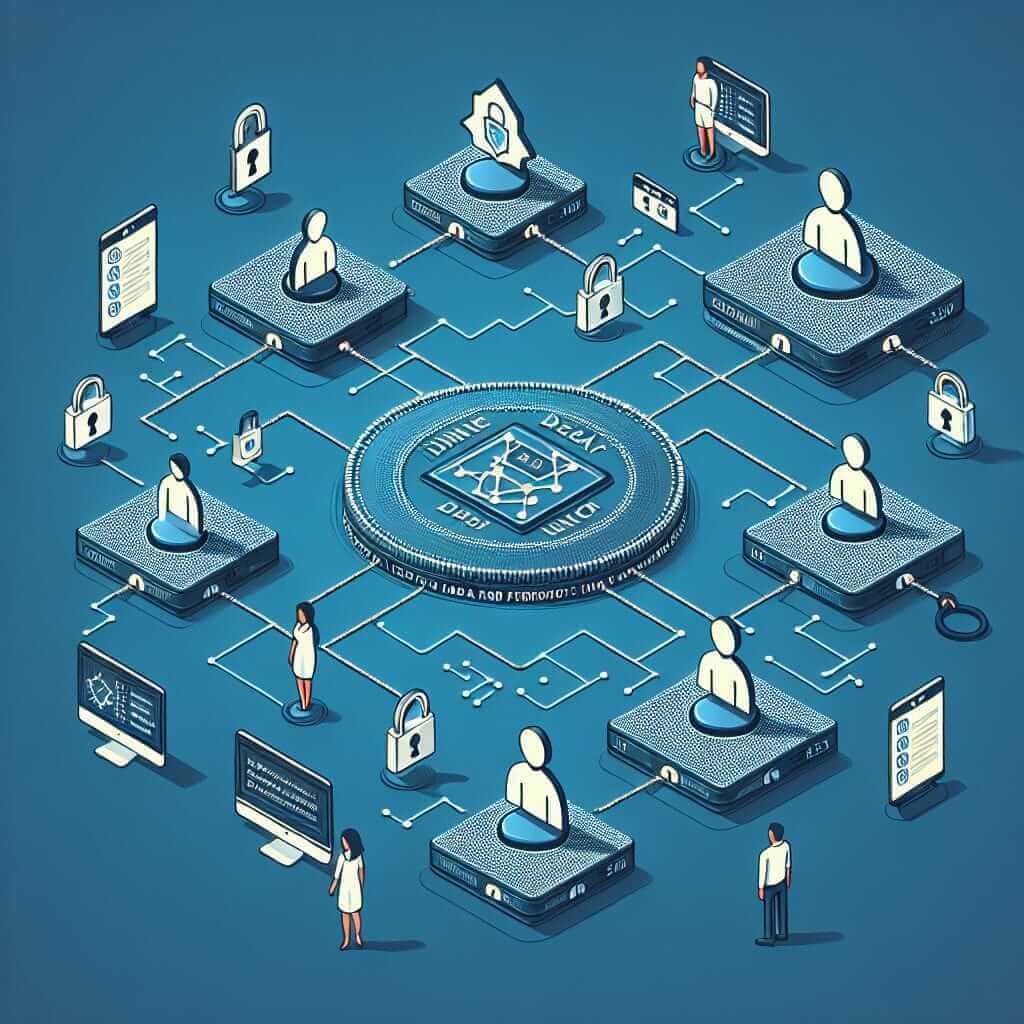The IELTS Reading section tests your ability to understand and interpret texts on a wide range of subjects. In recent years, technology, especially blockchain technology, has become a popular topic, making appearances in various forms within the reading passages. Given the growing importance of online security and identity verification, understanding how blockchain technology is being used in this realm is not only relevant but also highly likely to be a topic in future IELTS exams.
Reading Passage: Blockchain Technology in Identity Verification
Blockchain Technology and Identity Verification
Blockchain technology has grown exponentially in recent years, permeating various industries due to its ability to provide secure and immutable records. One of the most promising applications of blockchain technology is in the realm of identity verification. As digital identities become more prevalent, the need for secure, efficient, and reliable identity verification methods has become paramount.
The conventional methods of identity verification often rely on centralized databases that are susceptible to breaches and fraud. Blockchain, with its decentralized nature, offers a novel solution to these problems. Here are several ways in which blockchain technology is revolutionizing identity verification:

1. Decentralized Digital Identities
Traditional identity systems usually involve a single entity maintaining control over identity records. Blockchain technology, on the other hand, allows for decentralized digital identities, meaning that individuals control their own identity data on a distributed ledger. This reduces the risk of data breaches as there is no single point of failure.
2. Immutable Verification Records
One of the key features of blockchain is immutability. Once a block is added to the blockchain, it cannot be altered. This provides an unchangeable and verifiable record of identity verifications, which can be accessed by authorized parties. This is particularly beneficial in ensuring the authenticity of documents such as passports, driver’s licenses, and diplomas.
3. Smart Contracts for Automated Verification
Blockchain technology also enables the use of smart contracts, which are self-executing contracts with the terms of the agreement directly written into code. These can automate and streamline the verification process, reducing the time and cost involved in manual verifications.
4. Enhanced User Privacy
Blockchain allows for selective disclosure of information. This means that users can prove their identity or certain attributes without revealing excessive personal information. For example, instead of providing a complete document, a user can use a cryptographic proof to confirm their age or citizenship.
IELTS Reading Practice Questions
Questions 1-4: Matching Headings
Read the passage again and match each paragraph (1-4) with the appropriate heading from the list below. Write the correct number, i-viii, in boxes 1-4.
List of Headings:
i. Reducing Verification Costs
ii. Secure Data Management
iii. User Control Over Identity Data
iv. Automating Verification Procedures
v. Ensuring Data Integrity
vi. Enhancing Data Privacy
vii. Creating Verifiable Documents
viii. Decentralized Identity Storage
- Paragraph 1: ___
- Paragraph 2: ___
- Paragraph 3: ___
- Paragraph 4: ___
Questions 5-8: True/False/Not Given
Read the statements below and decide whether they are True, False, or Not Given.
- Blockchain technology can improve identity verification by centralizing control over identity records.
- Smart contracts are programs that automatically enforce an agreement written into code.
- User privacy is compromised in blockchain-based identity systems.
- Verification records on a blockchain can be changed if necessary.
Questions 9-13: Summary Completion
Complete the summary below using words from the box. Write your answers in boxes 9-13.
Decentralized Digital Identities:
Traditional identity systems are often (9) , making them vulnerable to breaches. Blockchain provides a (10) solution by allowing individuals to control their own data. Verification records on the blockchain are (11) , ensuring their authenticity. Moreover, (12) allow for the automated execution of verification tasks, and blockchain’s capability for selective disclosure enhances (13) ___.
Words: immutable, centralized, contracts, decentralized, privacy, vulnerable, expensive
Answer Keys
- Questions 1-4:
- iii. User Control Over Identity Data
- v. Ensuring Data Integrity
- iv. Automating Verification Procedures
- vi. Enhancing Data Privacy
- Questions 5-8:
- False
- True
- False
- False
- Questions 9-13:
- centralized
- decentralized
- immutable
- contracts
- privacy
Common Mistakes
- Misinterpreting the Passage: Students often misunderstand the passage because they read too quickly. Always read thoroughly.
- Matching Incorrect Headings: Be careful to match headings that truly reflect the main idea of each paragraph.
- True/False/Not Given Errors: Do not assume; only base your answers on the information given in the passage.
- Vocabulary Understanding: Struggling with unfamiliar words can lead to misunderstandings. Improve your vocabulary regularly.
Vocabulary List
- Immutable (adj): /ɪˈmjuːtəbl̩/ – Not able to be changed.
- Decentralized (adj): /diːˈsɛntrəˌlaɪzd/ – Distributed away from a central authority.
- Smart contract (n): /smɑːrt ˈkɒntrækt/ – Self-executing contracts with terms directly written into code.
- Selective disclosure (n): /sɪˈlektɪv dɪsˈkloʊʒər/ – Revealing only certain pieces of information.
Grammar Focus
- Relative Clauses: E.g., “Blockchain technology, which is decentralized, provides security.”
- Formula: Subject + Relative Pronoun + Verb
- Passive Voice: E.g., “Records are maintained by a network.”
- Formula: Subject + Form of ‘to be’ + Past Participle
Tips to Ace the Reading Section
- Practice Regularly: Frequent practice under timed conditions is essential.
- Expand Your Vocabulary: Learn new words and phrases related to common IELTS topics.
- Improve Skimming and Scanning: Develop these skills to find information more quickly.
- Understand Question Types: Familiarize yourself with different question types and strategies to tackle each one.
- Analyze Mistakes: Learn from your errors to avoid repeating them.